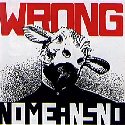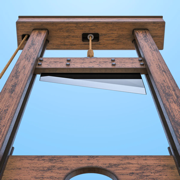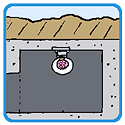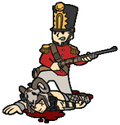|
feedmegin posted:Well...these are our primary sources on the matter, as I understand it. Worth noting that these are talking about the second day of Bannockburn - the English cavalry charging the schiltrons unsupported occurred on the first day, while the second day was the Scottish counter-attack. The battle was certainly won by the Bruce's attack, but the reckless cavalry charges against the Scottish footmen did happen.
|
|
|
|

|
| # ? Apr 19, 2024 21:16 |
|
Rent-A-Cop posted:Check out the guy's other reviews, they're hilarious. It's all Hamburger Helper, WW2 models, and Mosin Nagant paraphernalia. The highlight has got to be the Starship Troopers one though. Is this person being facetious or I don't know what is going on?
|
|
|
|
ChaosSamusX posted:Is this person being facetious or I don't know what is going on? He's gotta be an assburger.
|
|
|
|
Does anyone have a non-comedy reply to France in Indochina? (re: my post on the previous page)
|
|
|
|
ImmortalYawn posted:Does anyone have a non-comedy reply to France in Indochina? (re: my post on the previous page) http://www.amazon.com/Street-Without-Joy-Indochina-Stackpole/dp/0811732363/ref=sr_1_1?ie=UTF8&qid=1325441460&sr=8-1 I have this on my shelf, haven't read it yet though but it's supposed to be good.
|
|
|
|
Nckdictator posted:http://www.amazon.com/Street-Without-Joy-Indochina-Stackpole/dp/0811732363/ref=sr_1_1?ie=UTF8&qid=1325441460&sr=8-1 Thanks for the reply and link. It sounds just like it was a "debacle", for what I have read. Then there is the popular culture aspect with Apocalypse Now...and Im just still left thinking about the people left behind thing...
|
|
|
ImmortalYawn posted:Thanks for the reply and link. I've never heard of any Frenchmen 'left behind' because the French government couldn't get in contact with them. Can you give a link to where you heard about this? Also: "Hell in a Small Place" also by Fall is worth a read after "Street without Joy"
|
|
|
|
|
Veins McGee posted:I've never heard of any Frenchmen 'left behind' because the French government couldn't get in contact with them. Can you give a link to where you heard about this? Oxford Book of Military Anecdotes posted:The French GCMA--Groupement de Commandos Mixtes Aeroportes--teams which fought behind Vietminh lines in Indo-China were founded on Second World War maquis experience. Each was composed of native tribesman [sic] fighting under the leadership of French officers and NCOs, supplied by air. One of the most extraordinary and tragic stories of that war was the fate of surviving GCMA groups which could never be evacuated after the French withdrawal. This is presumably an excerpt from one of his books.
|
|
|
|
That Captain C sounds like an interesting fellow...
|
|
|
EvanSchenck posted:But the cease-fire was in effect and the last French troops left Indo-China in April 1956, in compliance with the demands of the Vietnamese nationalists. Yet the few remaining G.C.M.A.'s kept on fighting. No less an authoritative source than the Communists own weekly Quan-Doi Nhan-Dan ('People's Army') of September 3, 1957 reported that from July 1954 to April 1956 their forces in the mountain area east of the Red River had, 'in spite of great difficulties and hardships', killed 183 and captured 300 'enemy soldiers', while inducing the surrender of 4,336 tribesmen and capturing 3,796 weapons. Some of the luckier tribesmen, such as the Muong and Nung who were closer to the French lines, made their way to South Viet-Nam and are now resettled in the southern hills near Dalat, in a setting and climate very close to their beloved T'ai country. Others continue to trickle in neighboring Laos, whose own mountain tribes are their close relatives. This is presumably an excerpt from one of his books. [/quote] I'm pretty sure that's from Street Without Joy.
|
|
|
|
|
ImmortalYawn posted:Does anyone have a non-comedy reply to France in Indochina? (re: my post on the previous page) Out of genuine curiosity, what would be the comedy reply?
|
|
|
|
Dopilsya posted:Out of genuine curiosity, what would be the comedy reply? He's referring to this reply from the previous page: Trench_Rat posted:commedy option Devil's Guard tells the story of an ex-Waffen SS officer who served in the French Foreign Legion during the First Indochina War. The author supposedly interviewed the guy in Nepal, and presents his book as fact, but it's considered by historians to be about as credible as Sven Hassel's books about WW2. http://en.wikipedia.org/wiki/Devil%27s_Guard
|
|
|
|
Puukko naamassa posted:He's referring to this reply from the previous page: Reading some of the "reviews" in the amazon link is like reading posts on Stormfront. Its quite frightening. My dad told me about a school trip he took to Paris in 1954. Waiting at the Gard du Nord was a large group of French Foreign Legionionares who were all speaking German. Obviously a bunch of 10 year old schoolboys would want to know why and asked teacher. Teacher ( who was an ex marine commando ) told them that large amounts of SS soldiers joined the legion after the war. My dad, who had a keen insight into pre-internet trolling asked what would happen if he gave them a nazi salute. The teacher explained that he would probably be torn limb from limb and he would be on his own. My dad, sensibly thought best not. He described them as the hardest, meanest looking blokes he has ever seen. So you can see where the rumours / historical innacuracies come from.
|
|
|
|
http://www.amazon.com/Last-Valley-French-Defeat-Vietnam/dp/0306814439 is very good but is more focused on Dien Bien Phu than the French Indochina war in general.
|
|
|
|
This is an itty bitty question but it's always bothered me. Is there any significance to the way the British pronounce lieutenant (i.e. lef-tenant) or is it just English being English? Actually, I'm kind of interested in how the various ranks came to be called and why. I assume a private is a private because he is a "private soldier" and many names come from the French, but the significance and etymology of those ranks is a mystery to me.
|
|
|
|
zoux posted:This is an itty bitty question but it's always bothered me. Is there any significance to the way the British pronounce lieutenant (i.e. lef-tenant) or is it just English being English? Actually, I'm kind of interested in how the various ranks came to be called and why. I assume a private is a private because he is a "private soldier" and many names come from the French, but the significance and etymology of those ranks is a mystery to me. Pretty sure lieutenant came from the French phrase tenant lieu wich means "in the place of". This is because initially a lieutenant was a kind of deputy officer, second in command, the one who could replace his head officer. The word lieutenant wasn't used as a rank at first, but as an administrative term. Added to other rank names it has the same basic meaning (lieutenant-colonel for example). I think that the British role was the same as the French one but they called them left-tenants because they stood to the left of the officer they were a viable replacement for, but I'm not 100% sure of that. For privates its as you said. "Private soldier" refers to someone conscripted or hired into a private army, such as in the medieval era. For some other ranks (a lot of information is also available on the French army's website): Sergeant: from the French term sergent, which came from the Latin term serviens (to serve). During the middle ages a sergent was someone who kept the troops in ranks together during battle. Also sergent sounds like serre gens phonetically, which translates in French to "tightens people". So a sergent became the guy who formed the troops, if that makes sense. Captain: from the French term capitaine which had some Latin roots, I don't remember the specifics but it generally translates to "head". As such the capitaine was the head, or commander, of a body of troops. Colonel: Another French word with Italian roots, it comes from the Italian word colonello which translates as "column leader".
|
|
|
|
Actually, in Middle English, and arguably in dialects of Middle French that would've been spoken in England at that time, lieu was often pronounced "lef" (too lazy to make IPA work on this computer). I really don't trust that folk-etymology. Compare to Old French luef. Give me a bit to double-check some sources, and I'll do some other etymologies. (The rest of your etymology is right, though.)
|
|
|
|
In no particular order, because I'm lazy : Captain : As said, from the Latin capitis meaning "head". Pretty self explanatory Corporal : From the Latin corporalis, "of the body", and then modified by French. Again, "of the body (of troops)" is pretty easy to understand. Sergeant : As above. Although I can't find a source for "serre gens", and that doesn't really jive with how these things usually work, so I'd like to see a source. (And by source, I mean a linguist or philologist, because military historians, while great at what they do, are not actually famous for getting etymologies correct.) Colonel : canuckanese got this pretty much. Should add that it's from French coronel, but the spelling was later modified to match the Italian. Hence why the pronunciation doesn't make sense. ('r' and 'l' are notoriously fiddly and, as weird as it sounds, hard to distinguish, so they flip-flop pretty frequently) General : Is actually from the word "general", as in, "of a bunch of stuff". It's a shortening of "captain general" from the French Capitaine général Major : similar to above, it's actually the word "major", cf. Ursa Major, that has been left all alone after it was reduced from "sergeant major", being a higher rank than a sergeant. Admiral : Mildly contested in full : from Old French amirail, which probably maybe comes from Arabic amir-ar-rahl, "chief of transportation". But this isn't perfectly sourced and there is apparently some bickering. Ensign : Actually used to be a much higher rank, one who carried the standard or insignia (you see what I did there?), from the Old French enseigne, "mark, symbol, banner". I could figure out why this got significantly lowered and became Navy-specific, but that'd take work, so someone would have to ask me. I can do more, but this is what I could think of off the top of my head and that getting for sources was easy. If people want more, I'm still willing.
|
|
|
|
e: oops, my bad for trusting that wiki grognards have their act together.
Alchenar fucked around with this message at 10:33 on Jan 6, 2012 |
|
|
|
Dude, read what canuckanese and I already wrote : That's the root of the French word we're talking about : http://www.etymonline.com/index.php?term=sergeant. It was even already mentioned. What, you want to take this all the way back to PIE? Edit : Wikipedia? Really? Double Edit : \/\/\/\/ Why're you quoting me? Now you have me double-checking all of my facts, even though you're agreeing with you. I feel like I have broccoli stuck in my teeth and no one's telling me. Xiahou Dun fucked around with this message at 01:09 on Jan 6, 2012 |
|
|
|
Xiahou Dun posted:Dude, read what canuckanese and I already wrote : Not to mention Alchenar incorrectly quoted the word in the wiki (it's serviens) which in turn does not directly mean servant (that would be servus). Serviens means something more like 'being a servant' or 'serving' (and 'to serve' is servire, if we're being picky). Edit: Caput in Latin quite literally means head (as in on top of your neck), yes, and by extension a poetic term for chief or leader. It can also mean chapter, oddly enough, as in of a book. Capitis is 'of the head'. Edit edit: sorry, edited my post to be more clear who I'm disagreeing with! feedmegin fucked around with this message at 01:16 on Jan 6, 2012 |
|
|
|
As lovely as wikipedia is, articles relating to scholarly type stuff are usually fairly accurate. I would never quote it as a real source but it can be a decent starting point.
|
|
|
|
Sorry, feedmegin, was just a bit confused. And good call on the Latin ; I was correct but being a bit brisk and not giving all the middle bits. Thanks for keeping me honest! And, as to Wikipedia, I can only talk about how accurate it is in my own field, but it really isn't great, especially in regards to etymology. poo poo, half of the commonly cited dictionary etymologies don't hold up to real big-people scrutiny, and even on more normal pages it tends to waffle based on who updated it last. I don't know, maybe it's better for things that aren't linguistics. I mean, there's a concerted effort to try and keep the linguistics-related stubs accurate, and they still gently caress up left and right. Better than nothing, sure, but not a great source.
|
|
|
|
This doesn't have much to do with military history but I remember learning about some Swedish king who, as a birthday gift, had a flock of sheep released into a banquet hall which he then slaughtered with a broadsword. This guy supposedly got so fat later in life that he would ride horses to their deaths in battle and other ridiculous stuff. I really want to know if this actually happened or it was just something my teacher made up.
|
|
|
|
cargo cult posted:This doesn't have much to do with military history but I remember learning about some Swedish king who, as a birthday gift, had a flock of sheep released into a banquet hall which he then slaughtered with a broadsword. This guy supposedly got so fat later in life that he would ride horses to their deaths in battle and other ridiculous stuff. In the vein of wacky poo poo European royalty got into: I have a book about Spanish history(which is incredibly fascinating by the way) that explains how one particular Spanish King died. He was sitting in his room one day by a fire brazier and he was getting too hot, so he rang the bell to summon his servant to put out the fire. Well, the servant was off somewhere or asleep, so no matter how much the King rang his bell the servant didn't come. Furious, the King just kept ringing the poo poo out the bell and pouting next to the fire, getting hotter and hotter. Eventually, he passed out from heat exhaustion, never woke up, and died. Now, this King wasn't crippled in any way, or sick. He was just too stubborn and aloof to get up and move away from the fire because his servant was supposed to take care of that. So he died, like a chump. Back to military history though, I highly recommend everyone pick up a book about Spanish military adventures, particularly the conquest of Central and South America. Holy poo poo, some crazy stuff there.
|
|
|
|
Veins McGee posted:I've never heard of any Frenchmen 'left behind' because the French government couldn't get in contact with them. Can you give a link to where you heard about this? Looking for it now...have been since my original post. Was Probably in some Osprey book... EDIT: I have looked since I madethis post for where I had read it, All the Osprey books I have on the topic and others relate and Googled like a freak... and I cannot find it... Sorry, I am more than sure I did read such a statement, and thats why I brought it up here...No result. Sorry. BART IM PISS fucked around with this message at 14:48 on Jan 12, 2012 |
|
|
|
I hate to start this whole thing up again, but it's been on my mind lately: longbow vs. muskets. Whenever this whole debate about why muskets were adopted over longbows/other more common kinds of bow has come up, the consensus seems to be that: 1. Muskets were less accurate, shorter ranged and slower to fire than longbows. 2. Longbows, however, took a lifetime to train to use effectively whilst muskets were quick to produce and train men to use. 3. Longbows may/may not be able to pierce plate armour. I take issue with the omission of an important factor though: lethality. While it's all well and good to debate whether or not a broadhead arrow fired from a longbow could penetrate a French knight's plate armour and mail, all that is moot if the arrow doesn't actually kill him. A hollywood-ised view seems to dictate that if someone is hit by an arrow they clutch at the wound then fall over dead immediately. In reality an arrow creates a self-sealing wound that doesn't allow for near as much haemorrhaging and tissue damage as a bullet, and can easily deflect off bone, lodge in cartilage, or penetrate to a shallow depth after coming through body armour. Generally infection or slow blood loss is the cause of death with arrow wouns. A bullet, however, will not near as readily deflect, slow down or inflict minor wounds. A bullet will smash through armour, shatter bone and cavitate a person's body and generally cause a tonne of damage. I think this needs to be considered: a longbow might, MIGHT injure an armoured man if it penetrates his armour, whereas a gun definitely will.
|
|
|
|
Gibbone posted:I think this needs to be considered: a longbow might, MIGHT injure an armoured man if it penetrates his armour, whereas a gun definitely will. If you consider having an arrow in your guts to be an injury, then yes indeed, it MIGHT injure him. Just why is it important that a ranged weapon should immediately kill the target? Or any weapon, for that matter. One hit from a sword or spear may not be enough to immediately kill a man, does this mean... anything, at all?
|
|
|
|
I think the point he was trying to make is that there is more trauma generated by a bullet than an arrow, also three feet of steel in your guts is definitely more traumatic than a broadhead.
|
|
|
|
Branis posted:I think the point he was trying to make is that there is more trauma generated by a bullet than an arrow, also three feet of steel in your guts is definitely more traumatic than a broadhead. Should we therefore think that unless you can plunge your sword all the way to the opponent's innards, you shouldn't bother hacking and slashing at him at all? I don't think this is a fruitful approach. Even the slightest injuries are helpful if they mean that your opponent becomes less capable of hurting you. If I poke your eye out, it won't kill you, but you will be shocked and then I can kill you more easily. My point being that likewise a volley doesn't have to outright kill anyone to be effective. It might disrupt the tight enemy formation so friendly cavalry can run them over etc.
|
|
|
|
What matters is battlefield incapacitation. It doesn't matter too much whether or not your arrow wound itself is lethal if it's enough to take you out of the fight - enough people on your side drop out of the fight then you lose and someone from the other side walks up and stabs you or takes you prisoner.
|
|
|
|
Gibbone posted:Longbow v. musket who will win? You're missing the critical component in which the english had limited success in a scenario where they were always on the defensive, I'm fuzzy on the details but it was posted earlier in this thread.
|
|
|
|
Speaking of wounds and casualties and poo poo, is there any historical writing on battlefield evacuation of wounded? When the first rank took a face full of arrows and 20 guys drop are they just left behind or is there an effort to remove them and get medical attention? How about during the american civil war?
|
|
|
|
The Union certainly did during the ACW - the medical director of the Army of the Potomac, one Major Letterman, was one of the innovators in logistics of that conflict. Besides an ambulance corps and certified surgeons, there were forward aid stations and mobile field hospitals, as well. All by 1862, as I recall they saved a lot of lives at Fredericksburg. I believe this system was standardized across all Federal armies later in the war.
|
|
|
|
I love how the Crossbow always seems to be left out in the ranged weapon debates sometimes.
|
|
|
|
|
Crossbows are a halfway between the two, easy to use and powerful depending on their construction. Longbows are used in the argument because they're the complete opposite to machine shot weapons.
|
|
|
Rabhadh posted:Crossbows are a halfway between the two, easy to use and powerful depending on their construction. Longbows are used in the argument because they're the complete opposite to machine shot weapons. Fair enough, I just don't want the Crossbow to be forgotten as it really was an amazing bit of killer technology.
|
|
|
|
|
Gibbone posted:A hollywood-ised view seems to dictate that if someone is hit by an arrow they clutch at the wound then fall over dead immediately. Actually I would argue the opposite. I think you see people break the arrow off and continue fighting seemingly unabated (ie, Braveheart, like 5 different times) a lot more regularly. The reality was that a heavy arrow hitting a torso was probably going to be incapacitating, either by breaking a bone (especially in the shoulder/upper back area, which was most often hit with plunging fire from a distance), by cutting an artery, or just by virtue of the fact that the target now had a couple of feet of arrow sticking out of him.
|
|
|
|
Not to mention the psychological horror of seeing the arrow shaft happily embedded deeply several inches into their now painful wound too. I read the other day a nasty little tactic for one of the specialised arrow heads was it being rubbed firmly in human or animal excrement before being happily fired at the really unfortunate victim.
|
|
|
|
|

|
| # ? Apr 19, 2024 21:16 |
|
NoodleBaby posted:most often hit with plunging fire from a distance As the middle ages progressed and most of the dudes on the battlefield became more armoured, long range plunging fire became less and less effective. Thus archers would save their arrows for close range straight on fire. Medieval pictues of battles from the high/late middle ages rarely show archers firing into the air at an arc and more usually firing straight on. Plus arrows are quite an expensive ammunition, so you'd want to save them until they can be most useful.
|
|
|




























